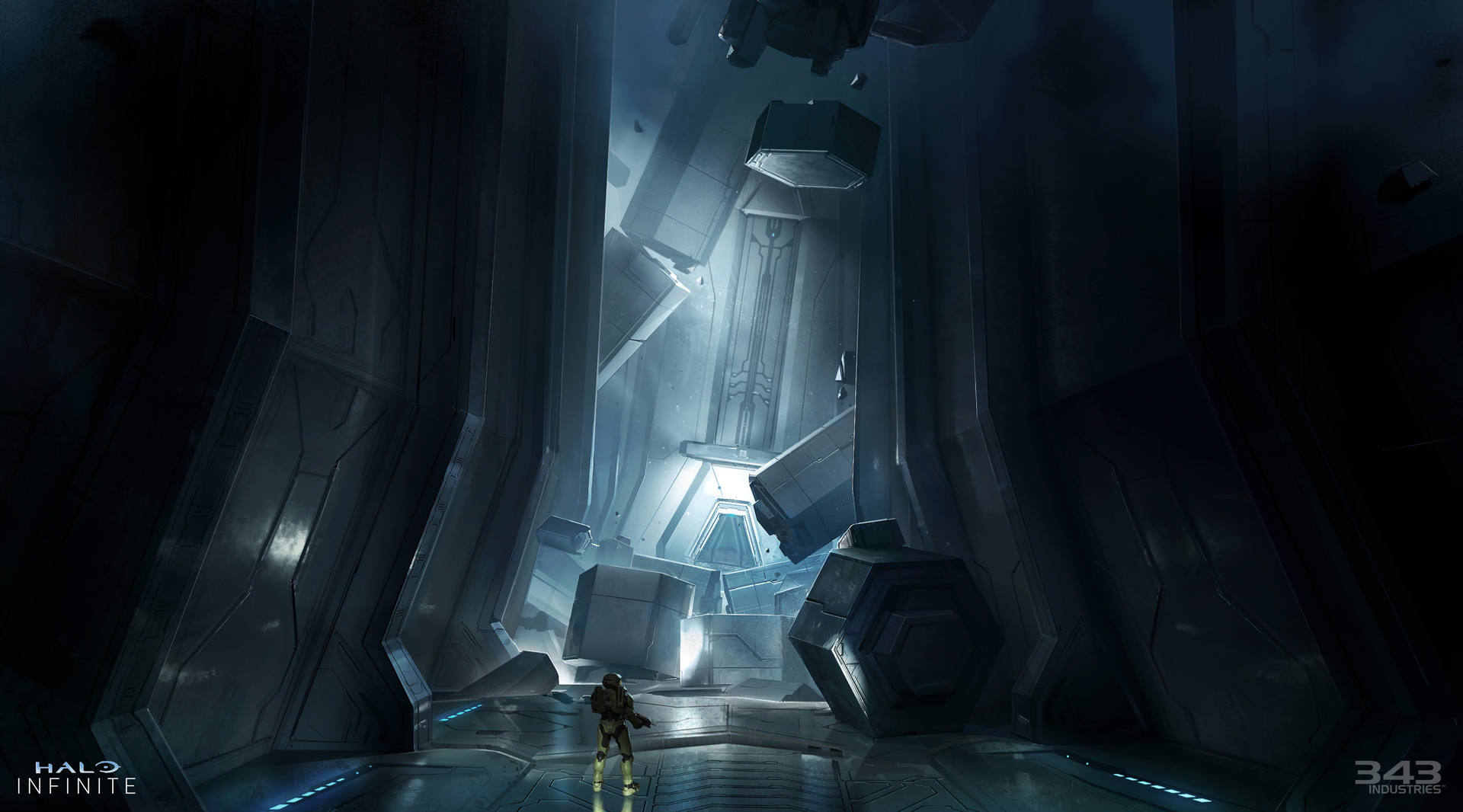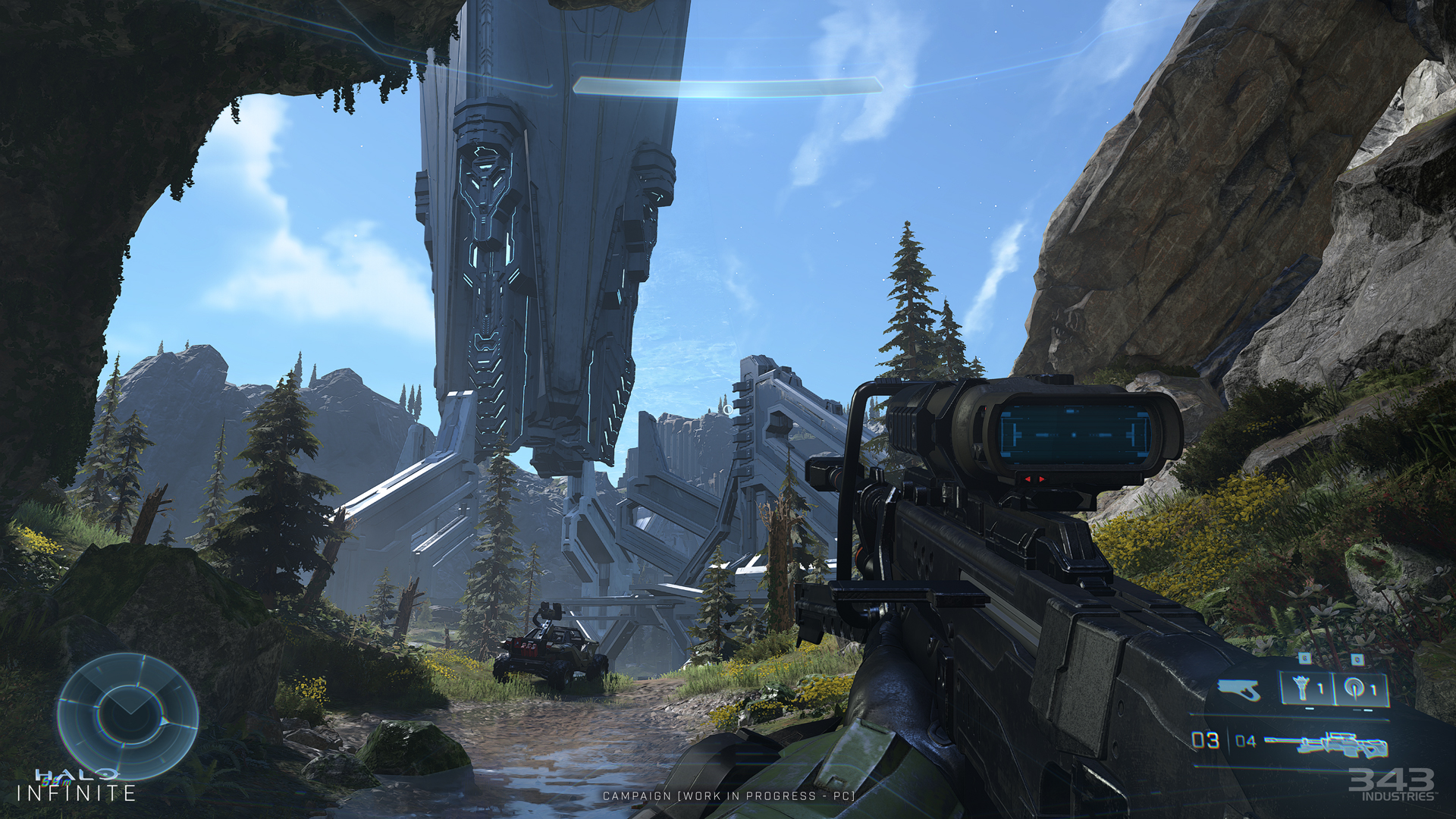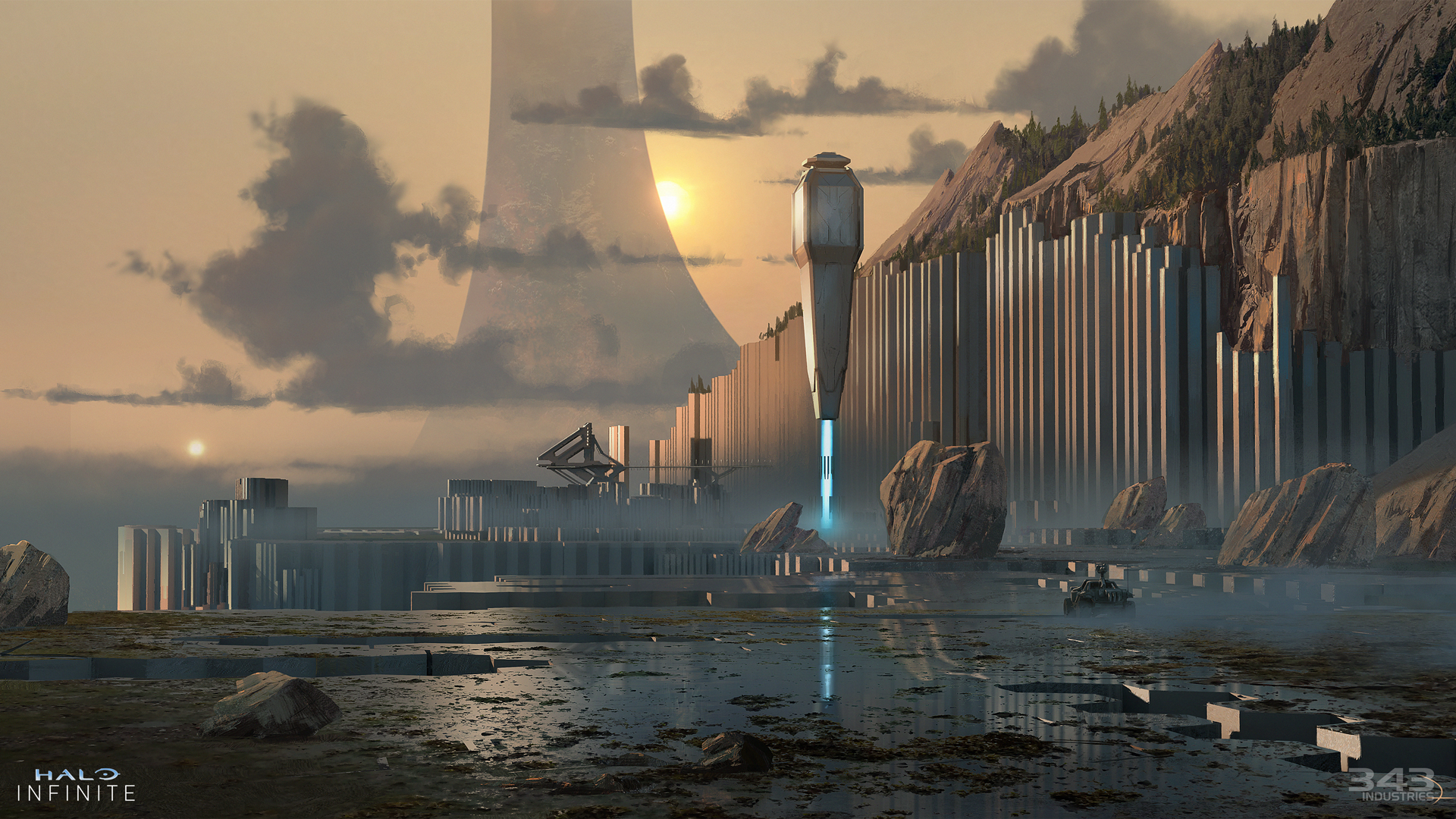Take It In Blood
Banned
only game I'm copping a series X for
If you got a PC its gonna be on that too.only game I'm copping a series X for
think im just gonna use my pc as a alternative VR machine to PSVR/2If you got a PC its gonna be on that too.
You can use a controller with pcthink im just gonna use my pc as a alternative VR machine to PSVR/2
I'm a console guy at heart and prefer not to click mouse and use keyboard
You can use a controller with pc
You can set your input restrictions to controller only and play with pc controller people and crossplay with xbox.then you’re handicapped against m&k players
Ok them screens look kinda hot
Instead of 30 threads on Gamepass a day, why aren’t y’all talking about this ?
What an improvement over that pathetic trash shown in the summer last year
No one can deny that if they make it correctly Halo is problem ....
It seems a few of you Xbox brothers were unhappy with the last few halos so hopefully this restores the feeling

It better be a pickup in multiplayer with set uses n not a loadout.

So this is going to be the official thread?
Made by this nikka?
Hell nah...
INSIDE INFINITE - MARCH 2021AUDIO EVOLVED

Hello Audio Team friends, welcome to the March edition of Inside Infinite! To kick things off, can you please introduce yourselves and tell us a bit about what you do and your history with Halo?
Sotaro Tojima: Hello, I’m Sotaro “Tajeen” Tojima, Audio Director for Halo Infinite, and I oversee our audio team and all of the sounds that help bring the game to life. I began working on Halo back in 2009 and have been pursuing my passion for the audio aspects of the franchise ever since. We’ve been busy working on Halo Infinite for quite a while now and I’m very excited to finally talk about some of the work we’ve done!
Chase Thompson: I’m Chase Thompson, the Lead Audio Technical Designer on Halo Infinite. I work on designing our audio tools and systems that control how audio plays back in-game. I started at 343 in 2012, working on dialogue in Halo 4. I remember playing countless hours in Battle Creek at LAN parties with my friends in Halo: CE, and I’ve become a Halo super-fan over the past 8 years working my dream job here at 343!
Kyle Fraser: I’m Kyle Fraser, the Lead Sound Designer on Halo Infinite. I help create and oversee the sound design for the game. I have been at 343 now for over 10 years. I have been a Halo fan since the CE days and being able to contribute to such an amazing franchise has been a career highlight for me.
Joel Yarger: Hi, I’m Joel Yarger, Music Supervisor on Halo Infinite. I joined 343 at the beginning of 2019 and was previously producing music for games at PlayStation. Back in 2001, I picked up an Xbox with Halo: CE at launch and was hooked. After hundreds, if not thousands, of hours playing Halo over the past two decades, I found myself with an awesome opportunity to join the team at 343 and play a role in the future of Halo!
In the years since Halo 5 there's been no shortage of feedback coming into the studio from all across the community. Thinking back, what were the key takeaways for the Audio Team and how is that influencing your work on Halo Infinite?
ST: We started gathering and evaluating player feedback right after shipping Halo 5. Our entire team went through all of the feedback, discussed each item in depth, then set about defining our audio goals for Halo Infinite.
We received a variety of great feedback and suggestions, but the highest-level takeaways for us, and our key goals for Halo Infinite, are “re-capturing the legacy essence of Halo” and “strengthening the excitement and impact of Halo’s combat.” With those primary goals established, our team has been passionately working to deliver on our vision as our partner teams around the studio have been bringing Halo Infinite to life.

So far, we’ve heard from Art, Graphics, Live, Sandbox, and the Campaign Team about some of their guiding principles and goals that drive the work they do on Halo Infinite. Does the Audio Team have similar high-level pillars that help shape your priorities and deliverables?
ST: Absolutely! Setting a clear unified direction across teams is very important to deliver a compelling game experience and it’s even more critical, and at times challenging, with a large team.
In our very first kickoff meeting I still remember our Art Director, Sparth, having the exact same top goal as the Audio Team – re-capturing the original essence of Halo – which was very exciting. The overall idea of “returning to the original essence of Halo” is heavily connected to the overall project vision of Halo Infinite being a “Spiritual Reboot” which you’ve heard mentioned by other members of the team in prior blogs. When we talk about “strengthening the excitement and impact of Halo’s combat” that aligns with some of what Troy Mashburn was discussing in last month’s blog around the concept of supporting the “Super Soldier” vision for the player’s experience. It’s been an exciting journey so far and our audio team is committed to delivering on these two key goals to hit the Halo Infinite experience our players have wanted.
At the highest level, we often refer to Halo Infinite as a “Spiritual Reboot.” Can you explain what that means to you from a music perspective?
ST: For me, from a Campaign music perspective, it’s all about capturing brighter themes like “hope” and “believe” while embracing the mystery and beauty of Zeta Halo. I love the scores for Halo 4 and 5 where we tried to incorporate story very carefully but as a result, tonally it wasn’t as hopeful as prior Halo games. The original games also had dark elements in their stories, but the music largely focused on the brighter side, which worked very well.
I contemplated why the brighter music fit so well with the darker stories and I think it simply boils down to, “because it’s Master Chief.” The Master Chief and Halo players have never been overwhelmed by challenging situations, even facing the potential end of humanity or the end of the universe. There is always a sense of hope, heroism, and confidence. So, when it comes to the music in Halo Infinite, we believe we should focus more on these brighter, positive themes to support Chief’s story and the player’s experience.

When it comes to the score specifically, how do you balance staying true to the past while also pushing to evolve and differentiate?
JY: For Infinite we first identified our core pillars, one of which was mentioned above as “Hope.” Another falls into the “ancient mystery/sci-fi” category and a third is “military/honor/sense of duty.” Connecting each of those together are common themes like a sense of wonder as well as heroism. We set out to bring back that brightness in tone from early Halo scores while continuing to evolve the palette with new voices in the industry (at least new to Halo) to honor what has come before while introducing new themes and styles. Of course, this centers around the fact that you are the Master Chief. You are that ultimate super soldier with an unfaltering sense of duty while maintaining compassion, blasting alien baddies with this beautiful and even uplifting music as a soundtrack.
An important aspect we identified for the composers (and factored into how we selected them) was having a level of comfort writing in major keys, not being shy to end with a major chord or inserting one where it might not be expected. And that last bit plays into another aspect we were after by not always moving to the next expected chord in a given chord progression but instead “surprise me!” One quote that Paul Crocker, our Associate Creative Director, shared early on with the entire Infinite team was to “take the familiar and flip it to create something surprising” but not wholly unfamiliar. Musically, that made a lot of sense and became one of our guideposts along the way.
When pushing things further and evolving the score it became a very collaborative effort with each of the composers. Wanting to marry the unique pillars of Halo music with the unique voices of each composer was as “organic” as we could make it. From building our own custom music sample libraries to tapping into the years of experience each composer brought through unique styles and even ensembles that are foreign to Halo. We were able to push certain aspects further while also setting us up for future development, which is very exciting.
Our ultimate goal with the music has been to say to those who have never played Halo, “Welcome.” And to those who have played and love Halo like we do, “Welcome Home.”
How was the decision made to partner with three composers for the soundtrack? Can you speak about some of the unique challenges and opportunities that comes from working with a trifecta of composers (largely remotely, at that!).
JY: With the scope of Halo Infinite (name says it all?) being larger than any previous Halo game, we established early on that we would need between 3 and 4 hours of written music. This only covers the campaign and does not include our multiplayer experience, which will be fun to discuss more in the future.
Past Halo games have relied on duos and even trios of composers to cover various aspects like themes, narrative threads, locations and even styles. We are very fortunate to have found three individuals who each bring unique talents, perspectives, voices and especially a passion for Halo and its long history. Between Gareth Coker’s mature command of an orchestra, Curtis Schweitzer’s intimate choral and piano writing, and Joel Corelitz’s mastery of synths and unique sounds, I think we have a fantastic composer team that will continue to push Halo into new areas well into the future. It’s important to note that Gareth, Curtis, and Joel covered many different themes, areas, and styles and were definitely not limited to what I’ve just mentioned above.
In terms of being remote, many composers and dev teams are used to working in separate cities, states, and countries. With 343 based in Redmond and our composers in places like LA, Chicago, and Colorado there wasn’t a major impact or change to how we were already writing the music for Halo Infinite. Where we did see a unique set of challenges was in producing and recording all the live elements of the remaining 2+ hours of our score during a global pandemic. Remote recording itself isn’t new and is common across various scenarios but this amount of music coupled with completely new, socially distanced, safety-oriented procedures, schedules and even seating layouts were all in uncharted territories for everyone involved. All of that said, every single person involved in the production of the Infinite score rose to the occasion and met these challenges with superb results!
For sound design, the team has made a number of improvements and updates to the soundscape since Halo 5. Can you talk some about the work done to help drive more immersion and excitement through audio?
ST: Great question! Actually, we’ve made a big change in our overall sound effects direction for Halo Infinite. With Halo 4 and Halo 5, our approach was on detailed sounds – we tried to deliver as much audio detail as possible, capturing pretty much everything happening on the screen.
However, that approach didn’t actually work out as well as we’d have liked. The result was too many sounds consistently playing which made it more difficult for some of the most important sounds - like enemy’s weapon fire, explosions, or bullet impacts - to really register with the player.
A typical piece of feedback we received from Halo 5 was, “it sounds rich, but I often can’t hear the enemy’s weapon when they fire at me.” We also heard feedback that AI combat wasn’t as “fun” as some players wanted, and we felt audio should be a bigger contributor to that.
With this feedback in mind, we decided to focus on strengthening the excitement and impact of Halo’s combat through improved audio. We established the concept just months after shipping Halo 5, and since then our team has worked together to deliver on this goal.
Our overall approach to land this concept was delivering the key combat sounds in a clear and impactful way. To achieve that, we had to reduce sound density dramatically in a natural way. Of course, this isn’t really as simple as it sounds. As I mentioned above, our audio contents and systems were designed for detailed and rich audio for Halo 4 and 5, so this new direction was pretty much the opposite approach compared to our last two games.